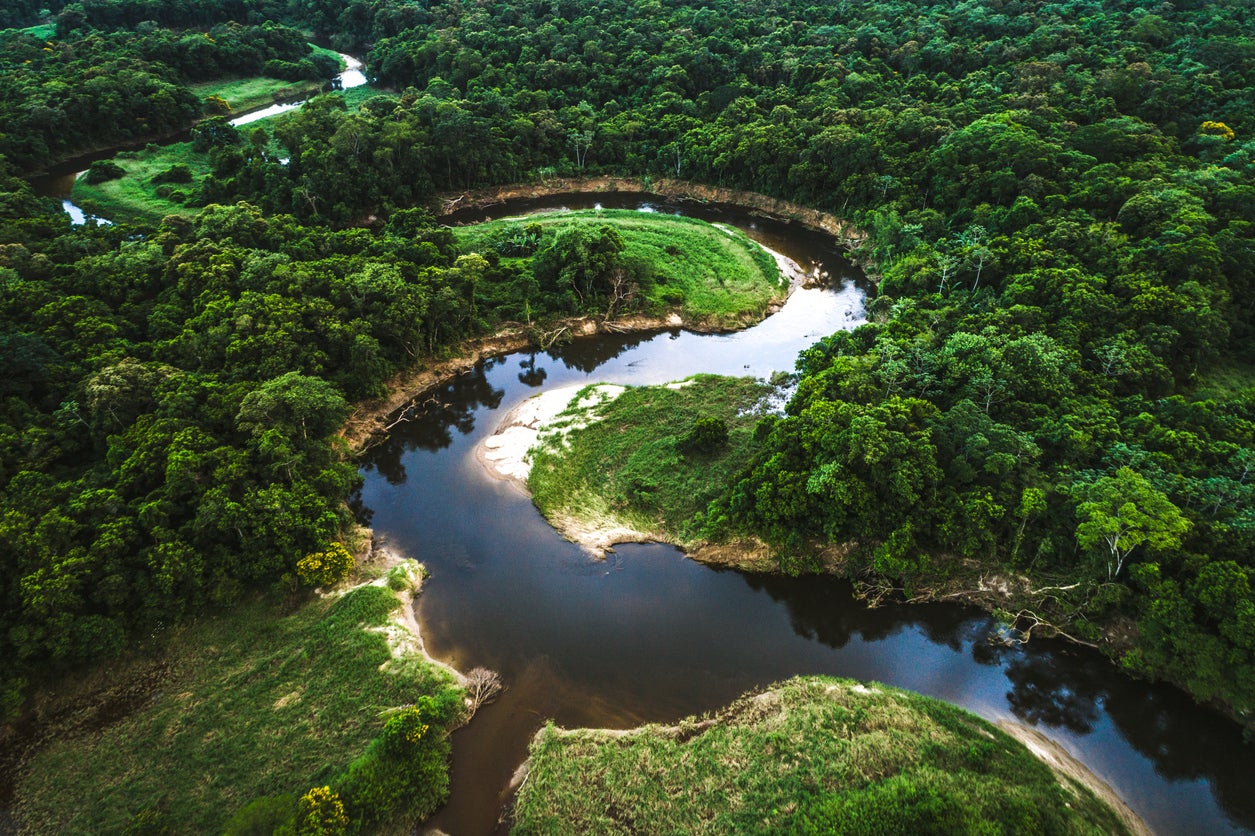Human exploitation of nature is driving pandemics like coronavirus, say UN and WHO
A new WWF report calls for international action on the high-risk wildlife trade, deforestation and industrial farming

Humanity’s broken relationship with nature has led to the coronavirus and other pandemics will follow, WWF International said, if the world continues to reject the warning signs.
WWF's new report calls for an international effort to reduce the risk of the next animal-borne, or zoonotic, disease outbreak, including stopping the trade and consumption of high-risk wildlife, rampant deforestation and booming industrial agriculture and animal farming.
A long line of conservation and public health leaders have issued dire warnings in the wake of the pandemic, which has caused more than 439,000 deaths globally, and called for recovery plans to take into account both the environment and public health.
Elizabeth Maruma Mrema, executive secretary of the Convention on Biological Diversity, wrote in The Independent: "While Covid-19 demands immediate action, there also needs to be a long-term vision; one that enables us to fundamentally transform our relationship with the natural world to reduce the risk of future pandemics."
"Many of the global health challenges that we face today, including infectious diseases, malnutrition and noncommunicable diseases are all linked to the decline of biodiversity and ecosystems," said Dr Maria Neira, WHO Director, Department of Public Health, Environmental and Social Determinants of Health.
In a statement on Wednesday, Marco Lambertini, Director General of WWF International said: “There is no debate, and the science is clear; we must work with nature, not against it. Unsustainable exploitation of nature has become an enormous risk to us all.”
The coronavirus originated in China last year. Scientists may never find its exact origins but currently, researchers mostly agree that the most plausible explanation is that the virus made the jump from an animal to humans in a “zoonotic spillover” event.
The World Economic Forum ranked pandemics and infectious diseases as an "acute threat" to human life a decade ago and an estimated 60% of emerging human viruses are zoonotic, according to the National Institutes of Health.
In February, China issued an unprecedented nationwide ban on all terrestrial wild animal commerce and consumption, including exotic species raised on farms. Authorities are now considering changes to the law. WWF today called on other governments to follow China’s lead and close high-risk wildlife markets.
Ending high-risk wildlife trade and consumption will not be enough, WWF said. There was a need to tackle industrial farming operations which are pushing deeper into diverse ecosystems, bringing humans, farmed animals and wildlife into closer contact than ever before.
The report advocated for an overhaul in unsustainable diets. Most habitat loss associated with agriculture come down to just three commodities, beef, soy and palm oil. In the past 30 years, 178m hectares of forest have been cleared, equivalent to a fifth of the US. Some 10m hectares of forest are being flattened every year for agriculture and other land uses.
"Land conversion for agricultural activities has caused 70 per cent of planetary biodiversity loss and half the loss of tree cover globally to date," the report noted.
WWF called for systemic change rooted in a ‘One Health’ approach linking the health of people, animals and the environment, noting that the UN Biodiversity Summit is a moment when world leaders could accelerate action. (Covid-19 has led to the summit being postponed until 2021).
Mr Lambertini said: “World leaders must take urgent action to transform our relationship with the natural world. We need a New Deal for Nature and People that sets nature on the path to recovery by 2030 and safeguards human health and livelihoods in the long-term.”
Join our commenting forum
Join thought-provoking conversations, follow other Independent readers and see their replies
Comments
Bookmark popover
Removed from bookmarks